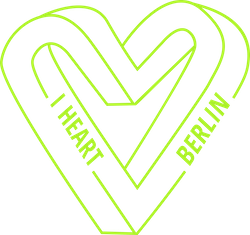Distinctions between dystopia and reality are increasingly collapsing in the face of inexhorable technological and ecological upheavals. Against this backdrop, Human Is employs science fiction as a spiritual and aesthetic vehicle to mobilize alternative futures, political imagination and a new posthuman ethics. This exhibition borrows its name from the eponymous short story by Philip K. Dick (1955) and investigates the idea of being human as a contestable and reversible category.
Since the 19th century ‚Äď and its notions of capitalist, scientific and technological progress ‚Äď science fiction has held up a mirror to the changing contemporary ‚Äúconditio humana‚ÄĚ with its values, fears and limitations. The seemingly external threat of extraterrestrial, supernatural or artificial beings often reveals itself as self-made anxiety and part of our cultural condition. The monstrosity of the unknown arises to shake up limitations, in effect, decentering the human protagonist.
Human Is juxtaposes historical with newly produced artworks. The exhibition paints a polyphonic picture of the mutual penetration of body and technology: it addresses the often violent interde-pendence of humans on their technological surroundings and opposes any promises of salvation through trans-humanistic progress. Simultaneously, it opens up spaces of possibility in which dual-istic taxonomies can be overcome in favor of a networked and interdependent existence. Human Is engages science fiction to transcend the humanistically inscribed human, on the one hand, and the species of anthropos, on the other, through both material and perspectival liminality. Many works uncover the hierarchies of power that have traditionally dehumanized the Other. Afrofuturism, for instance, imagines a society beyond the histories of exploitation and discrimination in which people can live in equality, often through strategies of mutation, hybridization and camouflage.
For many, the collapse of the systems we have come to rely on is no longer a distant apocalyptic future. Visionary science fiction writer Ursula K. le Guin sees fiction as a container for reinventing the possibilities of human experience and knowledge beyond any linear narrative of progress. And it is through these stories that the destruction and alienation of contemporary existence can trigger creative processes and a new ethics of relationality, which may no longer be truly human.
With Joachim Bandau,¬†Ivana BaŇ°ińá,¬†Ian Cheng,¬†David Cronenberg,¬†Matthew Angelo Harrison,¬†Tishan Hsu,¬†Laika,¬†Fritz Lang,¬†Mike Kelley,¬†Alexander Kluge,¬†Tetsumi Kudo,¬†Sidsel Meineche Hansen,¬†Nour Mobarak,¬†Sandra Mujinga,¬†Mary Shelley,¬†Diane Severin Nguyen,¬†Ovartaci,¬†Analisa Teachworth,¬†Suzanne Treister and WangShui
Tickets: 4‚Äď6‚ā¨



